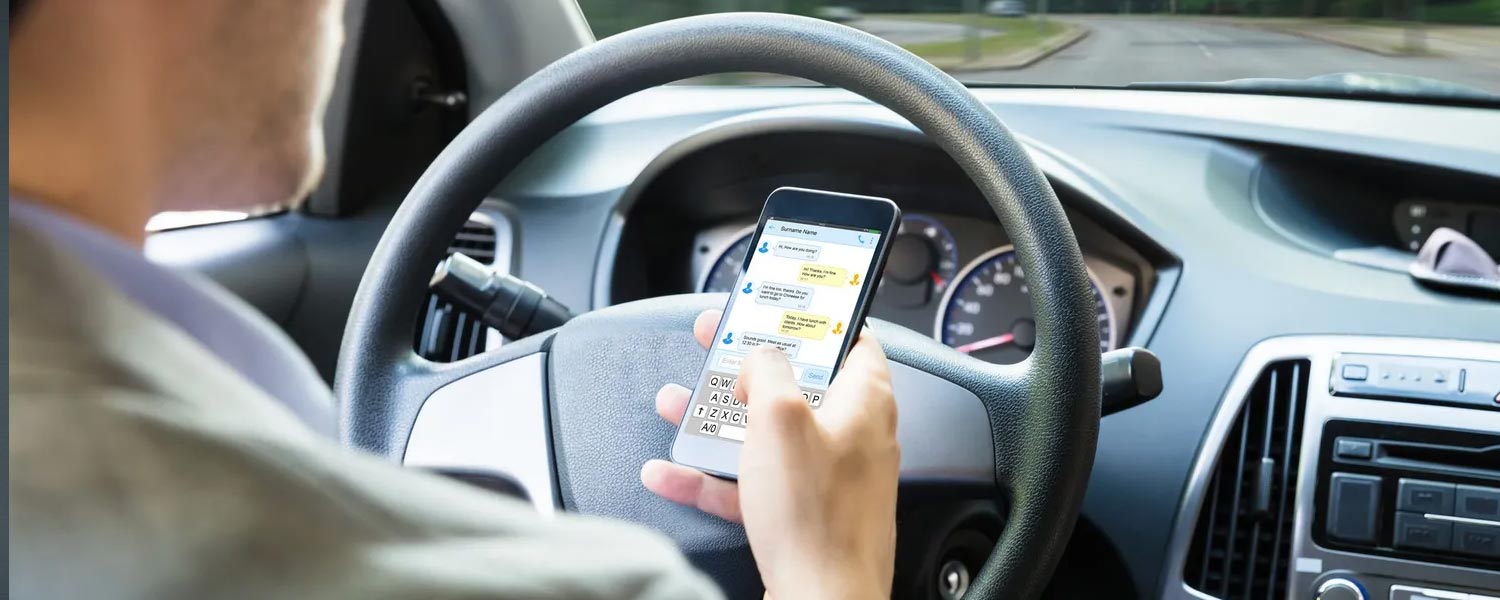Montana's Cell Phone and Distracted Driving Laws
Distracted driving has become a top cause of fatal car accidents, driven by cell phone use behind the wheel.
All Articles
Posted: 10/27/2018
Motor Vehicle Accident

The digital age has brought many positive changes - but one of the more serious negative outcomes has been driver distraction. Distracted driving has become a top cause of fatal car accidents, driven by cell phone use behind the wheel. Many states have passed laws restricting cell phone use while driving, but Montana is not one of them. However, certain municipalities in Montana have enacted their own restrictions to improve citizen safety. Here's what to know about distracted driving laws in the state.
Is Cell Phone Use Behind the Wheel Legal in Montana?
Although most states have enacted universal laws banning at least some forms of cell phone use while driving, Montana has not. Despite distracted driving is a significant cause of car accidents in Montana, the state has not passed any statewide texting- or talking-while-driving law. Instead, several municipalities have passed local bans on distracted driving and cell phone use. Breaking the bans in these cities could result in citations and fines.
Billings, Bozeman, Columbia Falls, Hamilton, Helena, Great Falls, and Whitefish all prohibit handheld cell phone use of any kind behind the wheel. Helena also prohibits all handheld cell phone use, but its law also extends to bicyclists. Missoula prohibits texting and driving (also applies to bicyclists). Both Butte-Silver Bow and Anaconda-Deer Lodge have countywide bans on handheld cell phone use while driving.
Pay attention when crossing through different municipalities in the state. Be careful to obey the specific cell phone laws in each city. The best way to protect yourself and others, however, is to never text and drive, regardless of the law. Put your phone away when taking road trips. Multitasking won't be worth it if you don't arrive alive. Using a cell phone is an act of negligence that could result in liability for accident damages.
Related Articles
- How to Survive Winter Driving in Montana?
- What Is Cognitive Distraction While Driving?
- Tips For Minimizing Cognitive Distractions While Driving
- Is Whiplash Considered A Serious Injury?
- Is There A Motorcycle Helmet Law in Montana?
- What Are Some Tips for Safe Driving In Severe Montana Winters?
- What Do You Do If Your Car Is Sliding On Ice?
The Dangers of Distracted Driving
Getting the facts on distracted driving can scare many drivers - especially new drivers - into abstaining from cell phone use behind the wheel. The numbers of distracted drivers and related accidents that occur every day are startling. The most dangerous form of driver distraction is cell phone use. A handheld phone takes the driver's hands, eyes, and attention off the driving task. Here are a few more facts about distracted driving in the U.S:
- Distracted drivers took at least 3,450 lives around the U.S. in 2016, based on data from the National Highway Traffic Safety Administration. Another 391,000 people suffered injuries from distraction-related traffic accidents.
- About 481,000 drivers use cell phones behind the wheel during daylight hours.
- Reading or sending a single text message while driving at 55 miles per hour is the equivalent of crossing a football field blindfolded.
- More than half of teen drivers who responded to a survey admitted to using a cell phone while driving, according to the AAA Foundation for Traffic Safety. More than 25% admitted to typing or sending text messages behind the wheel in the prior 30 days.
Distracted driving isn't just an issue in Montana. It's a global risk that takes thousands of lives every year. Cell phones aren't going anywhere. It's up to drivers to commit to putting their phones down while driving, or at least to use hands-free technology. Not only could put the phone down help drivers obey local cell phone laws; it could also save lives.
What to Do After a Distracted Driving Accident?
If a distracted driver crashes into you in Montana, you have rights. The driver may be guilty of negligence per se if he/she used a handheld cell phone in a municipality that bans them. This means just evidence of the driver using a handheld phone could be enough to prove liability. You may be eligible to recover your medical expenses, pain and suffering damages, lost wages, and other losses in an insurance or personal injury claim. Talk to a personal injury lawyer for more information.
Sign Up for More!
Join our community and subscribe! Sign Up for Exclusive Legal Articles and Resources.